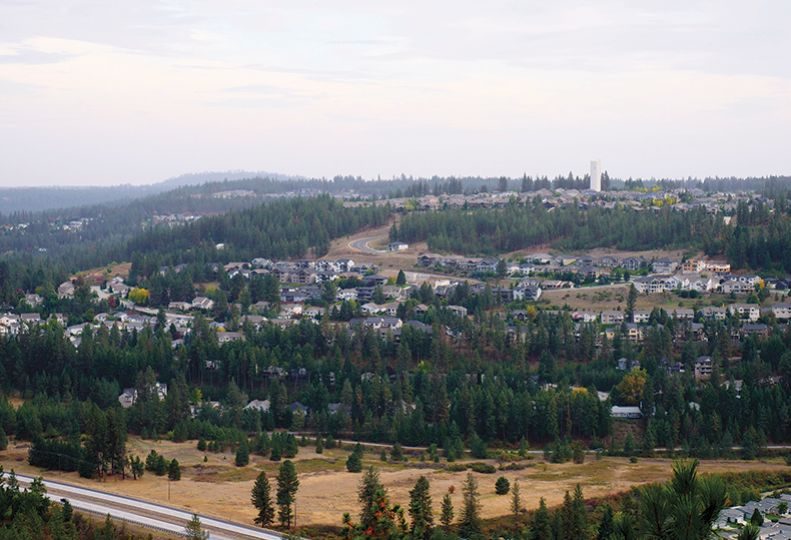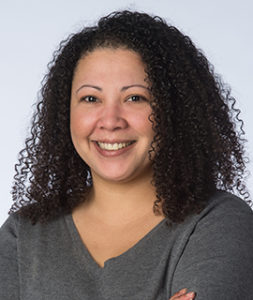
Home » Moratorium once more? Latah Valley growing pains have some talking about another development halt
Moratorium once more? Latah Valley growing pains have some talking about another development halt
Some developers say second pause will drive housing out of Spokane

September 28, 2023
A year after a six-month housing moratorium in Latah Valley was enacted by Spokane City Council, some campaign candidates for city government have signaled their support for a second moratorium in that southwest Spokane area.
The first moratorium imposed last September was enacted to give city leaders time to review and implement traffic impact fees and general facility charges for water and sewer service, says Tami Palmquist, development services center director for the city of Spokane. It was lifted in March 2023, and the city imposed citywide general facility charges for all new homes built in the city.
However, three candidates are campaigning on the need for a second moratorium in Latah Valley: Mayoral candidate Lisa Brown, Councilmember and Council President candidate Betsy Wilkerson, and District 2 City Council candidate Paul Dillon.
Dillon says he supports a second moratorium to give city leaders more time to find funds for road improvements, public transportation access, environmental concerns, schools, and a new fire station to replace a temporary facility that’s been in use since 2015—public safety issues that the first moratorium didn’t address.
“We wanted to make it very clear where we stand on this important issue,” Dillon says. “Without a commitment to funding or a plan, the moratorium must be put in place.”
Regarding the notion of stopping housing construction again, Greenstone Corp. CEO Jim Frank says, “I think that’s a bold move in a time where every news outlet is reporting that we need housing desperately.”
Joel White, executive officer of Spokane Home Builders Association, says these new impact fees and the general facility charges legally cannot be used to fix existing public safety and infrastructure issues.
New homeowners in Latah Valley shouldn’t bear the burden of fixing existing deficiencies in the neighborhood, says White, who is critical of the need for another moratorium.
White adds, “There’s people who are intentionally making this a political issue for votes.”
If a second moratorium goes forward, development at 17 sites in Latah Valley that are in the permitting or construction process for infrastructure work could be stalled for future home construction.
Construction among the 17 developments is expected to occur in phases over the next five to 10 years, and once complete, the projects will total over 2,800 new units in the neighborhood, Palmquist says.
Construction has started at six developments: Summit at Grandview, The Summit, West Bluff Heights, Tangle Ridge, Crystal Ridge, and Greens at Meadow Lane. The six projects will bring a total of 236 residential units once completed, she says.
These developments, however, currently have conditions that restrict home building to 20 units, she says. “A lot of these plats had the same condition that until they made improvements to systemwide infrastructure, like U.S. 195, … they could only build so many lots.”
Some critics of the proposed moratorium say the needed improvements shouldn’t completely stop homebuilding in Latah Valley.
Frank, of Greenstone, says supporters of a new moratorium there are suppressing housing development.
The Liberty Lake-based development company has put a hold on an application for 96 residential units at Grandview Addition, adds Palmquist.
Another housing moratorium in Latah Valley would send a signal to homebuilders that the city of Spokane, “is not a safe place to make a housing investment,” says Frank. As a homebuilder, “you’re putting yourself at risk in Spokane, because you never know when they’re going to decide to impose another building moratorium without any notice.”
Some developers, including Frank, are looking at other jurisdictions in Spokane County and in North Idaho to develop housing as a result, he says.
“The whole environment has been frustrating,” says Frank. “There’s almost more houses being built in Airway Heights than there are in the city of Spokane.”
Dave Black, CEO of Spokane-based real estate brokerage NAI Black, says, if residential development is shut down through another moratorium, it would limit income from taxpayers and developers that would help fund improvements.
Limiting housing development for a second time means, “you can’t build the very thing that the public wants,” says Black.
One of Black’s companies, Black Realty Inc., has applied for preliminary long plat approval from the city of Spokane for a project dubbed Qualchan View Estates, he says.
The Qualchan View project site involves about 58 acres of undeveloped land located west of U.S. 195, near South Meadow Lane Road. The proposal calls for subdividing the land into 160 single-family lots, according to application information on file with the city of Spokane.
He says he doesn’t support moratoria in general, adding that another one in Latah Valley would punish builders with projects there.
“Don’t punish builders and developers because they are the hand that feeds,” says Black. “We need to talk to the city leaders about actually building the infrastructure needed.”
Latest News Real Estate & Construction Government
Related Articles
Related Products




